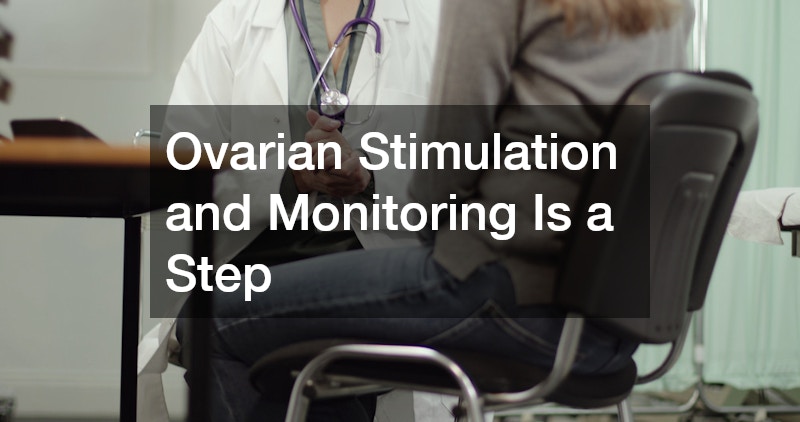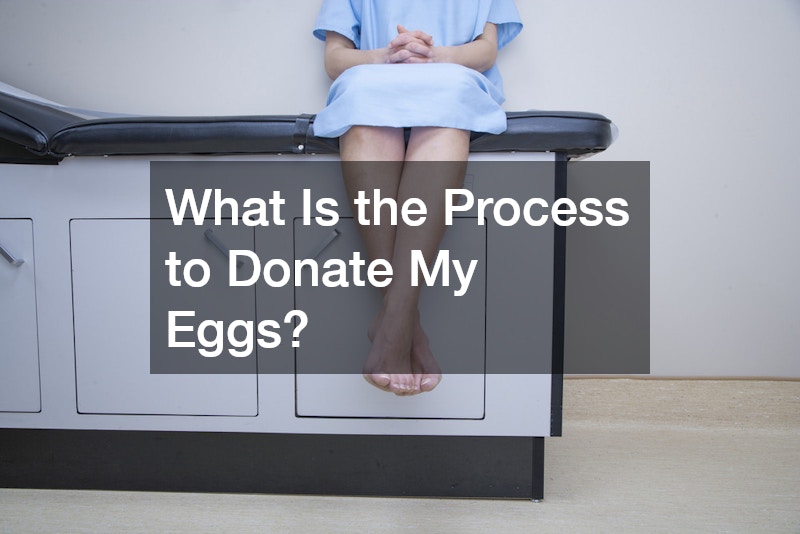Egg donation is a vital part of assisted reproduction, allowing individuals or couples who cannot conceive naturally to build their families. The process involves a woman donating her eggs, which are then fertilized with sperm to create embryos that are implanted in the uterus of an intended mother or a surrogate. Donating eggs is a significant and selfless act that can help others experience the joys of parenthood. Are you wondering, ” How can I sell my eggs?” If you’re considering egg donation, it’s essential to understand the process thoroughly. Here’s a detailed look at what to expect when donating your eggs.
Step 1: Initial Consultation and Screening
Before becoming an egg donor, the first step is to undergo a thorough screening process to ensure that you are physically and mentally fit to donate. During this stage, you’ll meet with the fertility clinic or egg donation agency to discuss your personal health history, motivations, and the overall egg donation process. This is also an opportunity for you to ask any questions you may have about the donation process and the potential outcomes.
The screening typically includes a detailed questionnaire about your medical and family history, lifestyle habits, and any past reproductive history. This is followed by a series of tests, which may include:
Physical examination: A general health check-up is conducted to assess your overall well-being.
Blood tests: These tests screen for various health conditions such as sexually transmitted infections (STIs), hormonal levels, and genetic disorders.
Ultrasound: An ultrasound may be performed to check the condition of your ovaries and reproductive organs.
Genetic testing: Some clinics will also test for genetic conditions that may be passed down to any future offspring.
Psychological evaluations are also part of the process to assess your mental and emotional preparedness for egg donation. This ensures that you fully understand the emotional and physical commitment involved and are making the decision for the right reasons. The clinic may also discuss any potential psychological effects the donation process could have, such as the possibility of forming a connection to the children born from your eggs.
Step 2: Matching with Intended Parents
Once you’ve been cleared for donation, you’ll be matched with intended parents. This is a crucial step, as the success of the donation process depends on ensuring that your eggs are suitable for the intended parents. Fertility clinics or egg donation agencies typically provide profiles of potential recipients, including information about their background, ethnicity, and preferences for egg donors. The matching process is designed to ensure that both the egg donor and the intended parents are comfortable with the match.
Some egg donation agencies or clinics provide donors with the opportunity to choose whether they want to remain anonymous or have their identity disclosed to the recipient later on. Anonymity is a common practice in many donation arrangements, though some donors and recipients may opt for open donation, where both parties are willing to share personal information with one another.
Step 3: Ovarian Stimulation and Monitoring
Once the match has been made, the next step involves stimulating the donor’s ovaries to produce multiple eggs. This is done through hormone injections that encourage the ovaries to produce several mature eggs in one cycle, as opposed to the single egg a woman typically releases each month. The process of ovarian stimulation takes about 10-14 days.
During this time, you will undergo regular visits to the fertility clinic to monitor your response to the medication. These visits typically involve:
Ultrasounds: To measure the size and growth of the follicles in the ovaries where the eggs are developing.
Blood tests: To monitor hormone levels and ensure that the body is responding appropriately to the medications.
The purpose of this monitoring is to prevent the ovaries from becoming overstimulated, which can lead to a condition called ovarian hyperstimulation syndrome (OHSS). In most cases, the monitoring is frequent—usually every two to three days—to ensure the stimulation is progressing as expected.
Step 4: Egg Retrieval
Once the eggs are ready for retrieval, you will undergo a minor surgical procedure to collect them. The procedure is typically done under light sedation or anesthesia, so you won’t feel any pain during the process. The doctor will use a thin needle, which is inserted through the vaginal wall and into the ovaries, guided by ultrasound. The eggs are then aspirated (suctioned) out of the follicles.
The procedure usually takes around 20-30 minutes, and most women can go home the same day. You may experience some cramping or spotting afterward, but these symptoms typically subside within a few days. Your clinic will provide aftercare instructions and advise you on when you can return to regular activities.
Step 5: Post-Donation Care and Recovery
After the egg retrieval, your body may take a little time to recover. You may experience mild discomfort, such as bloating or cramping, which is normal due to the stimulation process. The clinic will provide you with post-procedure instructions on what to expect and how to care for yourself during recovery.
During this period, it’s important to take things easy and avoid strenuous physical activity for a few days. Your clinic may schedule a follow-up visit to check on your recovery and ensure that there are no complications from the procedure.
Step 6: Compensation and Legal Considerations
In most cases, egg donors are compensated for their time, effort, and the physical process involved. The amount of compensation can vary depending on the clinic or agency, as well as factors such as your experience and the demand for eggs in your demographic. Compensation is typically provided in installments—often after the completion of the stimulation process, and then again after the egg retrieval.
Additionally, it’s important to have legal agreements in place before beginning the donation process. These contracts outline important aspects such as the rights of the egg donor and the intended parents, any compensation arrangements, and what will happen with the eggs if they are not used by the recipient. Legal agreements also address issues such as whether the donor is allowed to have future contact with the children born from the donated eggs.
Egg donation is a deeply impactful process that can bring joy and fulfillment to intended parents who are struggling with infertility. While the process requires significant physical and emotional commitment, it can be an incredibly rewarding experience for both the donor and the recipient. As an egg donor, you’re playing a pivotal role in someone’s journey to parenthood, and knowing what to expect during the process is essential.
From screening and matching to the actual egg retrieval, the entire process is managed carefully by fertility specialists and legal professionals to ensure the well-being of both the donor and the recipient. Understanding the steps involved—from medical stimulation to post-donation care—can help you make an informed decision and ensure a smooth, successful experience.



